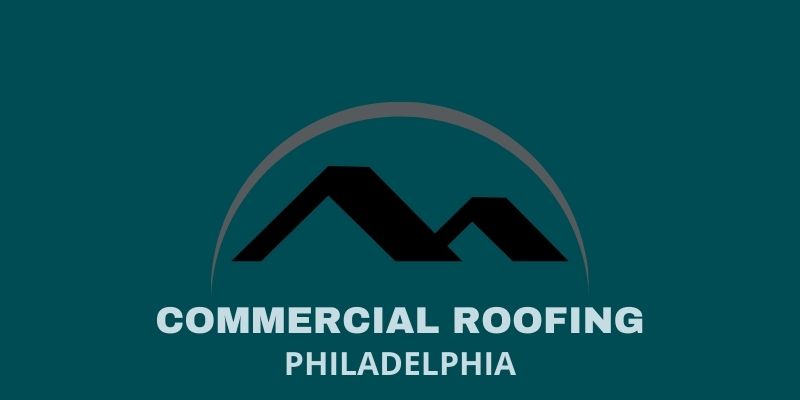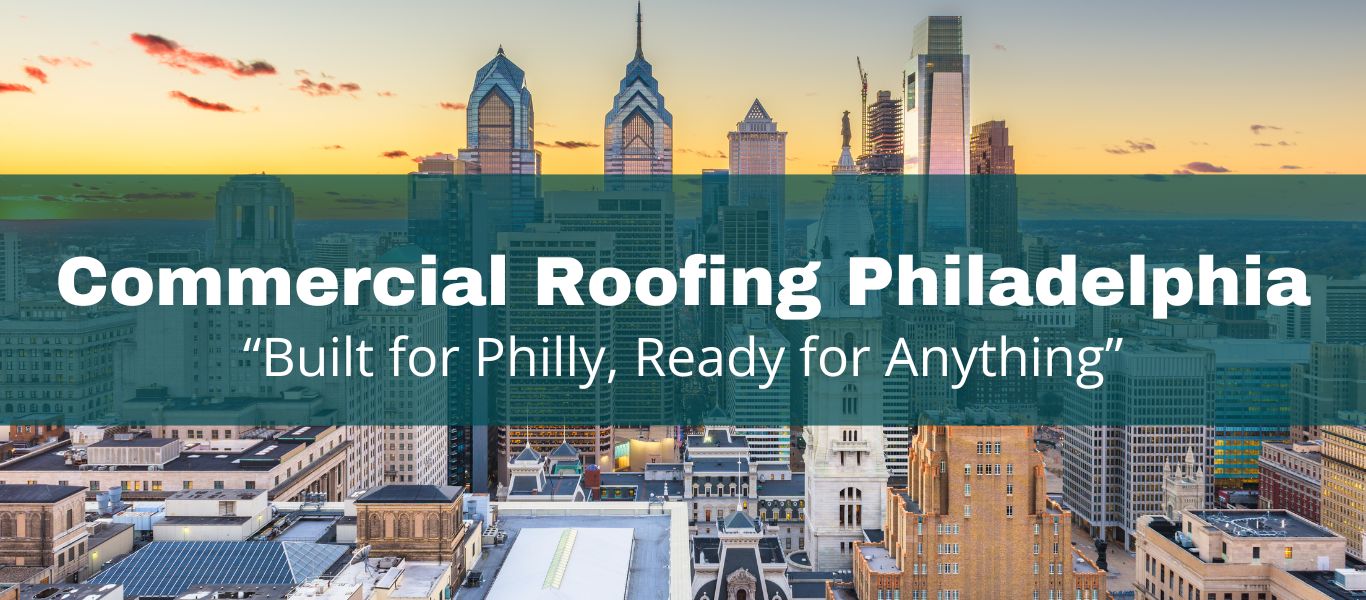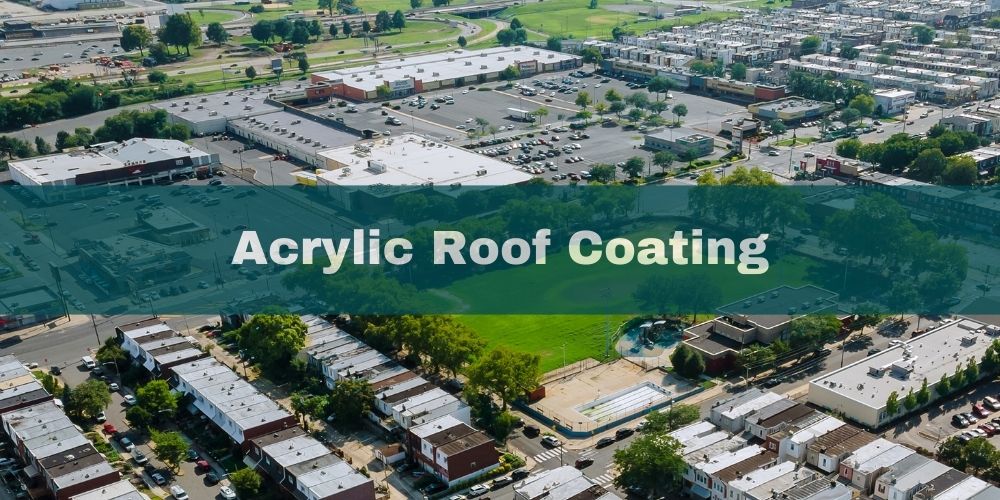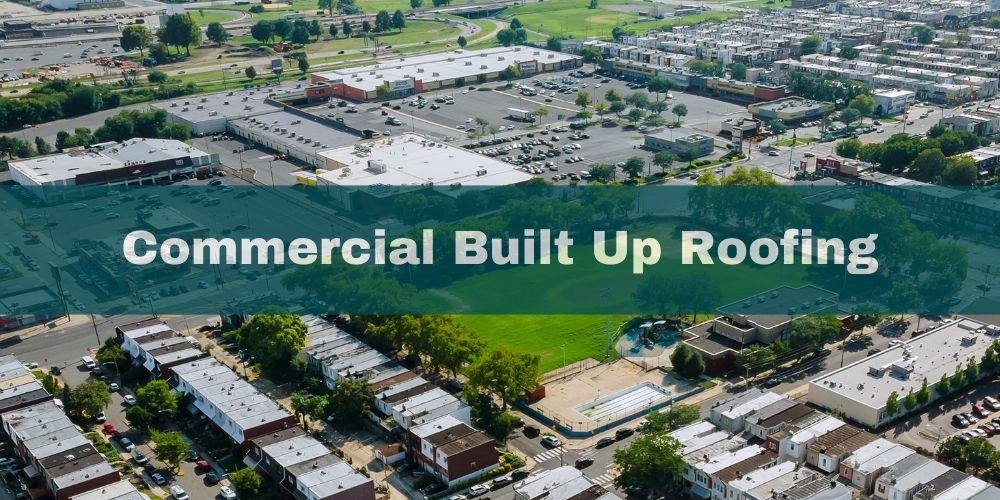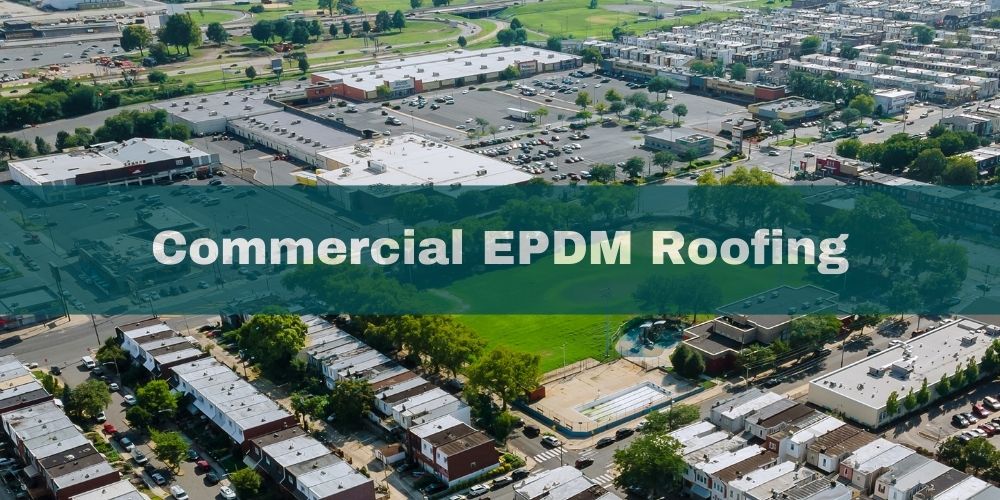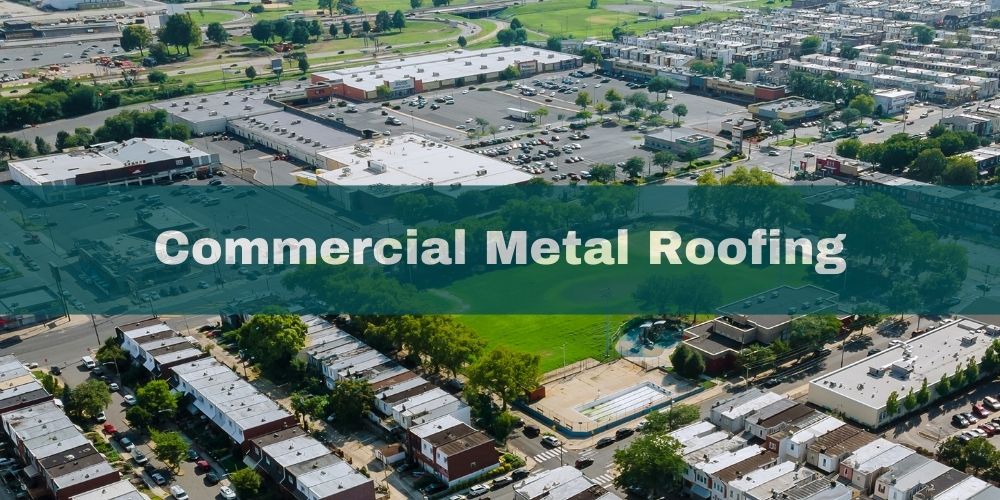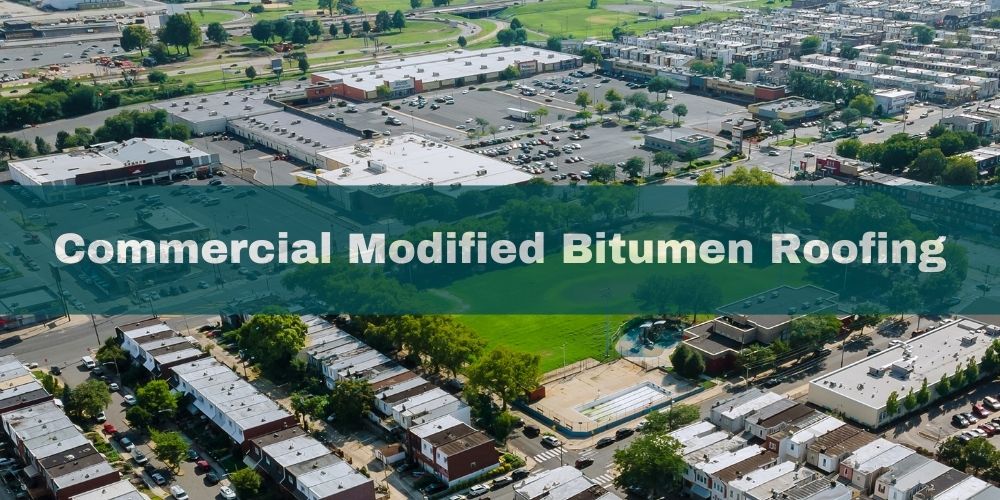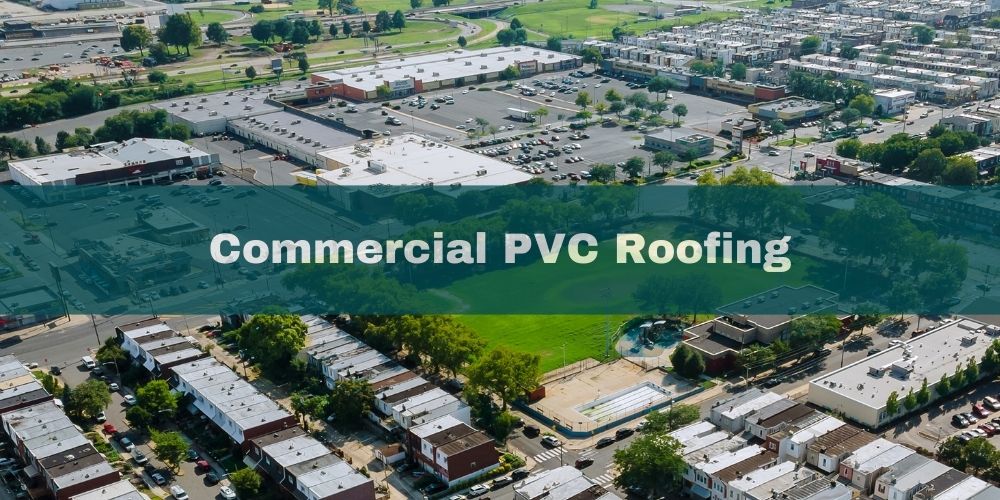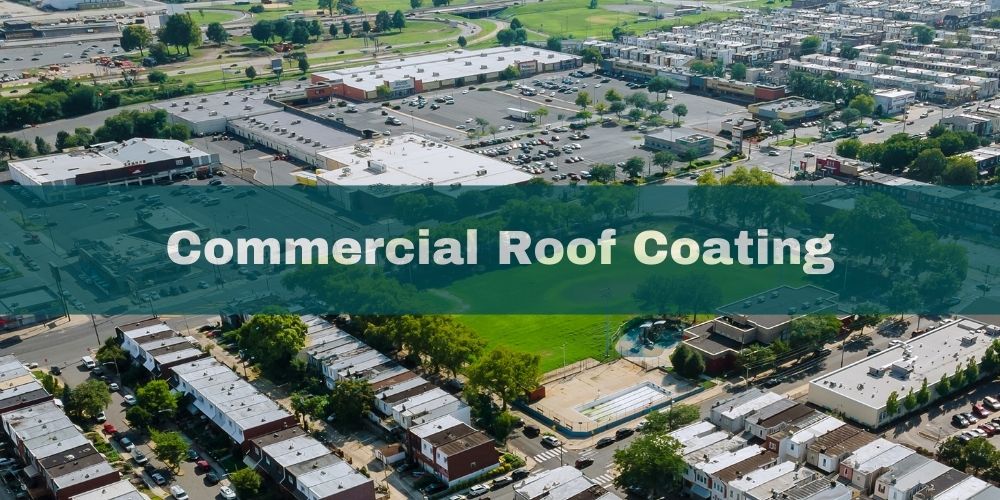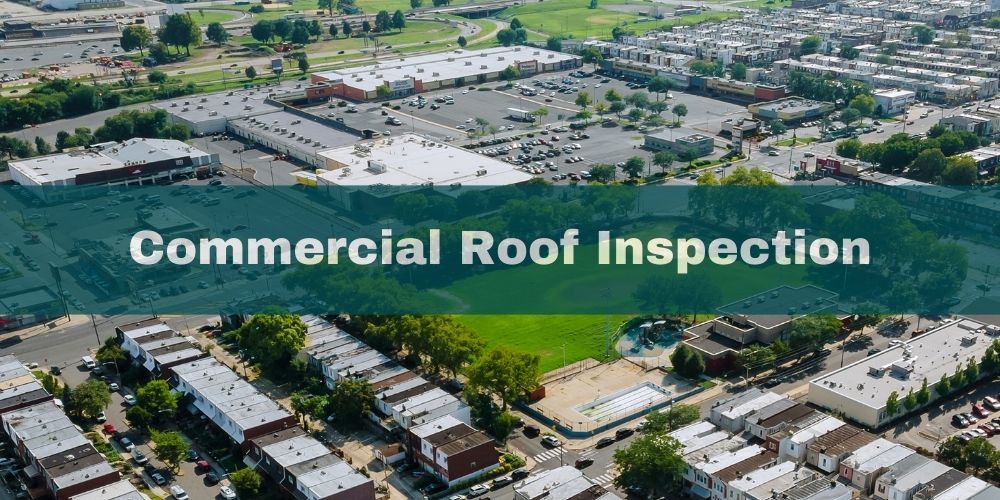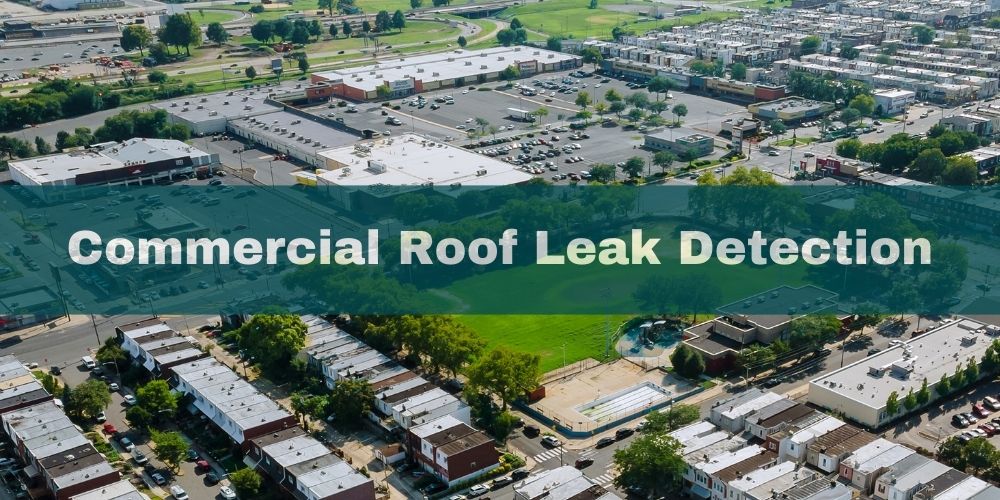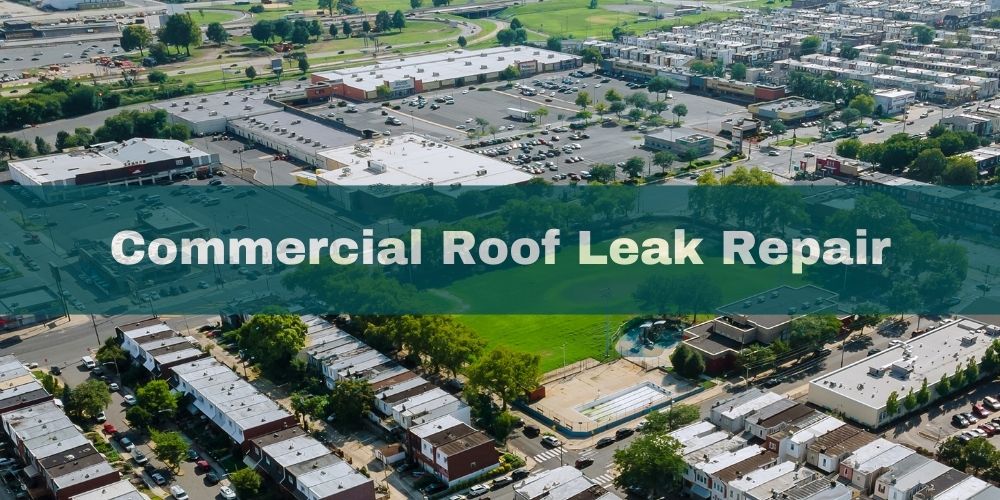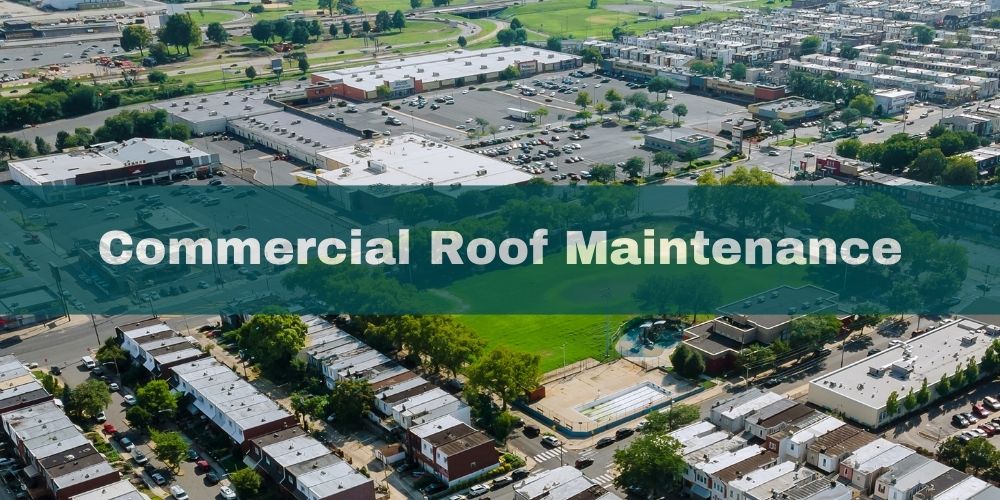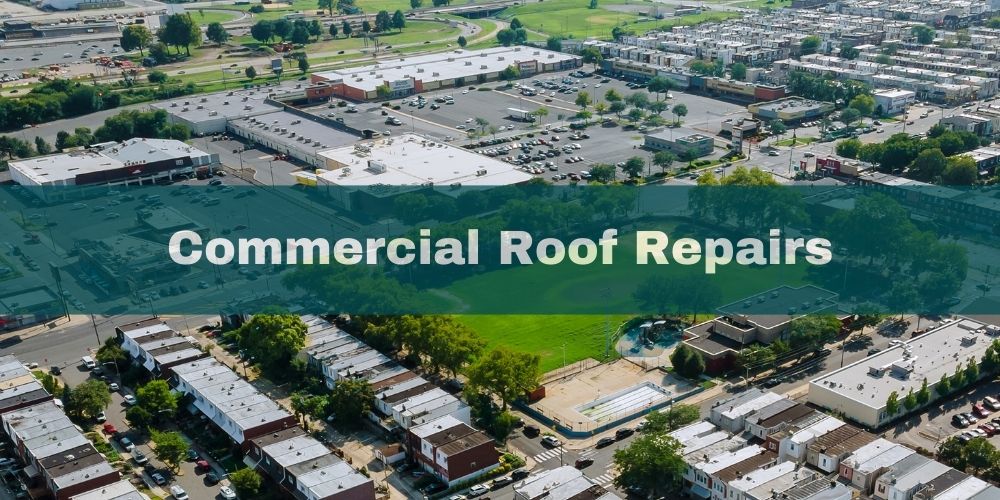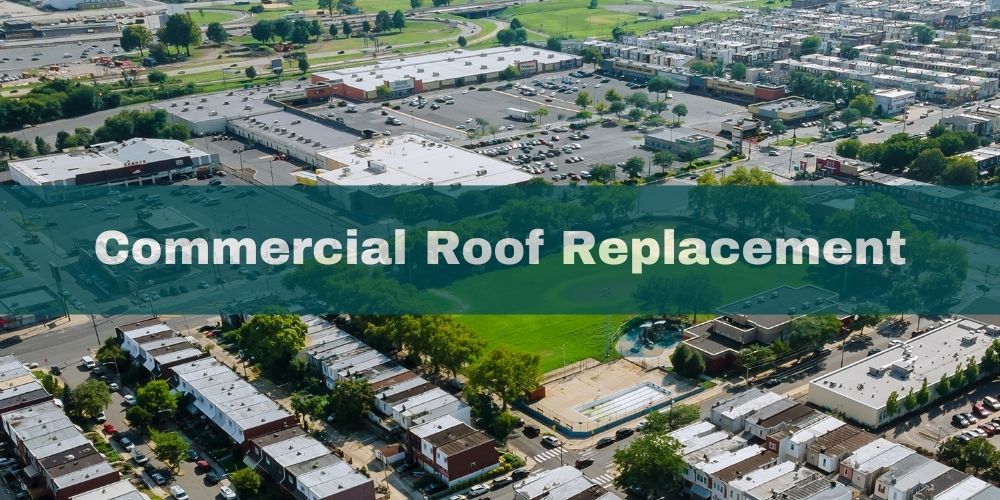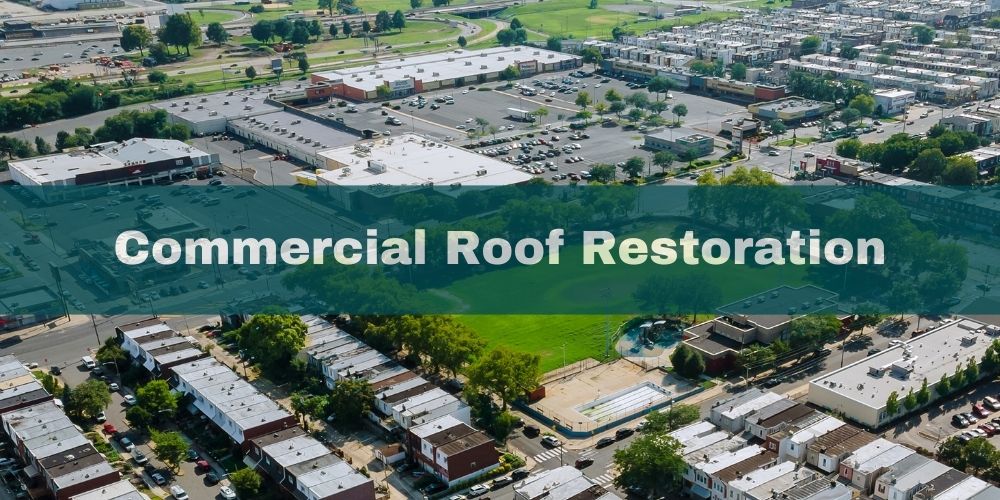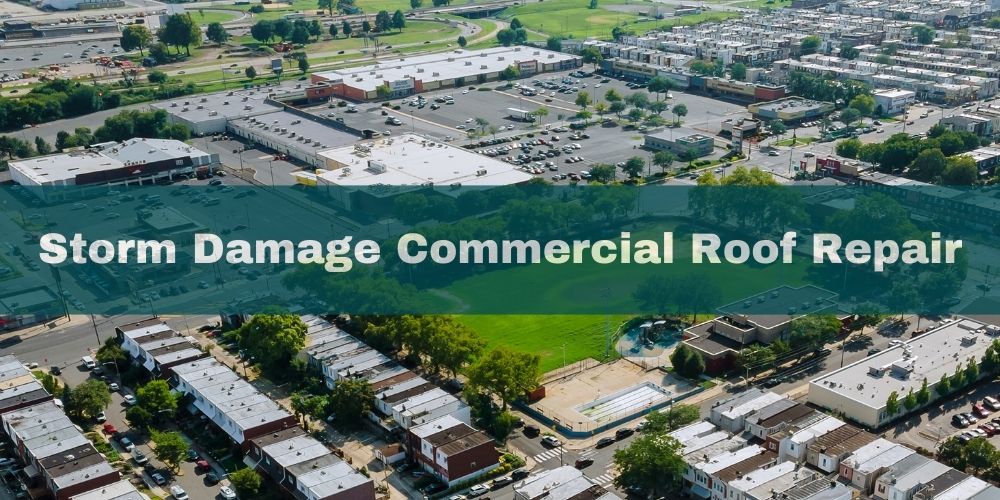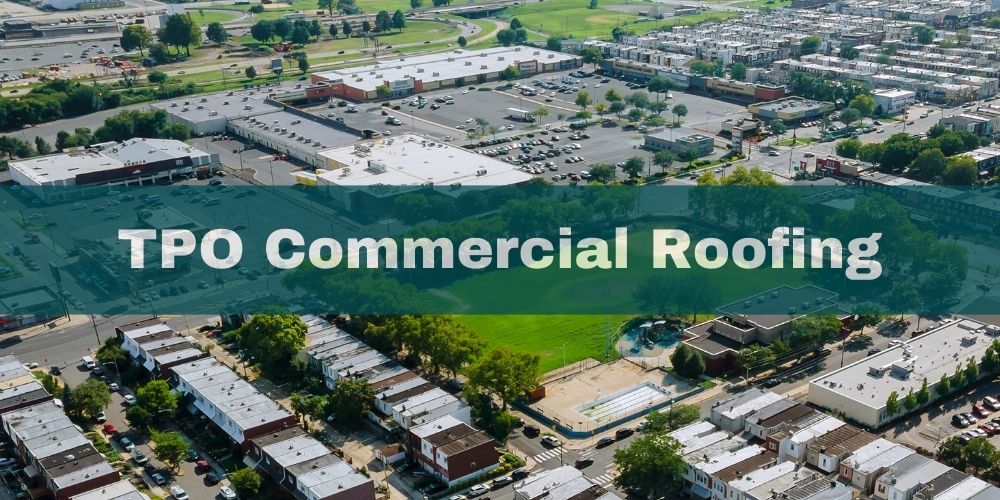Commercial Roofing Philadelphia: Experts In Commercial Roof Systems
Commercial Roofing Philadelphia are a company specializing in high-quality commercial roofing solutions tailored to meet the specific needs of businesses. The services Commercial Roofing Philadelphia provide include; installations, roof repair, maintenance, and inspections. All of the solutions provided by Commercial Roofing Philadelphia focus on delivering optimal performance in the diverse climate of the Philadelphia area. Commercial Roofing Philadelphia are committed to precision and durability. As a commercial roofing company Commercial Roofing Philadelphia pride themselves on using top-grade materials to ensure long lasting roofing systems which provide buildings with exceptional protection. This is underlined by their motto: “Built for Philly, Ready for Anything.”
Commercial roofing refers to the specialized field of roofing services which focuses on commercial buildings. Commercial roofing typically applies roofing systems to offices, warehouses, and retail establishments. Commercial roofing encompasses a number of roofing materials and systems. Most commercial roofs are flat roofs. The materials and systems used for commercial roofing are metal or membrane based. The commercial roofing systems selected is decided by considering factors like; building size, climate, and budget. Commercial roofs are typically larger than residential roofs. Commercial roofs also need specific expertise for installation, maintenance, and repair. Custom solutions are also often needed for commercial roof systems due to their unique architectural and load-bearing requirements. The goal of commercial roofing is to ensure durability, energy efficiency, and long-term performance whilst aligning with functional and regulatory standards.
Table Of Contents
- What Is Commercial Roofing?
- What Types Of Commercial Roofing Are Commonly Utilized In Philadelphia?
- What Are The Key Factors When Choosing A Commercial Roof In Philadelphia?
- How Much Does Commercial Roofing in Philadelphia Cost?
- Our Commercial Roofing Services
What Is Commercial Roofing?
Commercial roofing refers to the installation, repair, and maintenance of roofing systems on commercial buildings and structures such as office buildings, warehouses, retail stores, and hospitals. Unlike residential roofing, commercial roofing typically involves larger surfaces and more complex designs which must accommodate features such as HVAC systems, large vents, and skylines. The materials used in commercial roofing, such as TPO, EPDM, PVC, and modified bitumen, are chosen for their durability and ability to withstand severe weather conditions and heavy foot traffic, which are common in commercial settings.
Commercial roofing requires specialized installation skills and knowledge due to the complexity of the roofing systems use. There is a demand for precision work when handling the detailing work around various equipment housed on flat or low-slope roofs. Commercial roofing systems often require regular maintenance and inspections. The reason for regular maintenance and inspections being required is to ensure longevity and performance. Commercial roofing can be customized to provide energy-efficient solutions such as reflective coatings which reduce heat absorption and help lower energy bills.
Commercial roofing in Philadelphia must take into account the city's variable climate, which includes cold winters with snow and freezing rains. And warm, humid summers. In Philadelphia commercial roofs must use robust materials able to withstand temperature fluctuations and precipitation. Due to Philadelphia's history and preservation regulations, some commercial roofing projects may also require adherence to specific aesthetic or architectural requirements. This is particularly particularly likely for commercial roofing projects undertaken on any of Philadelphia's historic buildings. Businesses in Philadelphia seeking roofing services, should seek out experienced commercial roofing contractors who understand the environmental and regulatory demands unique to the region.
Have a question about an upcoming project?
What Types Of Commercial Roofing Are Commonly Utilized In Philadelphia?
The types of commercial roofing commonly utilized in Philadelphia include; TPO (Thermoplastic Olefin), EPDM (Ethylene Propylene Diene Monomer) rubber roofing, PVC (Polyvinyl Chloride) roofing, built-up roofing (BUR), modified bitumen, and metal roofing. TPO and PVC are often selected for commercial roofs due to their durability and energy efficiency, which are important characteristics in Philadelphia's varying climate conditions. EPDM is often chosen due to being effective and being able to withstand extreme temperatures. Built-up roofing systems are valued for being time tested and having multi-layer protection. Modified bitumen gives flexibility, especially in cold weather and metal roofing is preferred for its longevity and low maintenance requirements.
- TPO Roofing
- EPDM Rubber Roofing
- PVC Roofing
- Built-up Roofing
- Modified Bitumen Roofing
- Metal Roofing
1. TPO Roofing
TPO roofing is a type of single-ply roofing membrane made from a blend of polypropylene and ethylene-propylene rubber. In commercial roofing, TPO is prized for its durability and energy efficiency. TPO roofing reflects sunlight and helps reduce cooling costs in larger buildings. TPO roofing typically comes in rolls and can be installed using various methods. The most common installation method for TPO roofing are mechanical fasteners or adhesives. A key advantage of TPO roofing is its resistance to mold, dirt, and tears. This advantage makes TPO roofing a low-maintenance choice for large rooftops. Heat-welded seams make TPO an excellent choice of roofing material for areas with high winds or storms. In Philadelphia's climate, TPO's reflective properties are another benefit as they protect the roof during hot summers and can contribute cost savings on energy bills.
2. EPDM Rubber Roofing
EPDM roofing is a widely used synthetic rubber membrane, known for having exceptional durability and weather resistance. In the commercial sector, EPDM is prized for its ability to withstand extreme weather conditions, including UV radiation, hail, and fluctuating temperatures. EPDM roofing is normally available in black or white. EPDM has good insulation properties which can help to reduce heating costs. EPDM installation is a straightforward process, which normally involves rolling out large sheets. The use of large sheets helps minimize the number of seams in the roofing system. Minimizing the number of seams in the roofing systems reduces the number of potential leak points. EPDM's cost-effectiveness and longevity make it a very popular choice of commercial roofing system. In Philadelphia, the EPDM durability, cost effectiveness and straight forward installation make it a wise investment for commercial building owners.
3. PVC Roofing
PVC roofing is a type of single-ply membrane made from polyvinyl chloride. PVC roofing is known for its strength and energy efficiency. PVC roofing is often selected for commercial buildings for its ability to resist chemicals, fire, and UV rays. These attributes of PVC roofing make it a good choice for rooftops with equipment which may emit pollutants. PVC roofing's flexibility enable it to adapt well to a multitude of roof shapes. This flexibility enables PVC roofing to ensure protection for complex detailing works around plant machinery, skylights and vent pipes often found on commercial roofs. PVC roofing systems incorporate heat-welded seams, which allows the waterproofing system to remain watertight and effective over long periods. PVC roofing has good solar reflectivity starting at the 0.80 range, this makes PVC an energy-efficient choice. PVC roofing is a reliable roofing systems for commercial properties in Philadelphia due to its weather resistance and energy-saving properties.
4. Built-Up Roofing
Built-up roofing is a traditional method of commercial roofing which uses multiple layers of bitumen and reinforcing fabrics. Built-up roofing is finished with a protective surface. BUR is a time-tested roofing material know for having excellent waterproofing and a long lifespan. Built-up roofing is capable of providing excellent protection against the elements. The top layer of BUR systems typically consists of gravel or mineral granules which provide additional protection against UV damage which helps maximize the roof's lifespan. Built-up roofing systems have a reputation for being able to withstand heavy foot traffic and equipment loads, both excellent traits for a commercial roofing system to possess. BUR is an excellent time tested roofing solution for commercial buildings in Philadelphia.
5. Modified Bitumen Roofing
Modified bitumen roofing is an asphalt-based system with polymer modification to enhance performance. Modified bitumen provides impressive resistance to splits and tears. This resistance makes modified bitumen an excellent choice for commercial roofs which must endure high foot traffic or frequent maintenance activities. Modified bitumen roofing is applied in layers. The layered application of modified bitumen roofing increases its strength and waterproofing capabilities. Modified bitumen roofing can be installed in different ways. The versatile installation process of modified bitumen roofing allows for different approached depending upon the commercial buildings requirements. Typical installation methods for modified bitumen roofs include; heat welding and the use of cold adhesives. Modified bitumen roofing is known for its flexibility, this makes it an ideal roofing material for Philadelphia where it can cope with the temperature fluctuations of the east coast without compromising the roofing system's integrity. Businesses which choose modified bitumen benefit from a robust and flexible roofing material which provides protection in both cold winters and hot summers.
6. Metal Roofing
Metal roofing is a durable, weather-resistant roofing system made from materials like steel, aluminum, or copper. Metal roofing provides longevity, energy efficiency, and protection against harsh environmental conditions. Metal is a hugely popular commercial roofing system especially for industrial roofs. The reason for metal roofing's popularity is because it has low maintenance needs and a long lifespan which can exceed several decades. Metal roofs are fire, wind, and impact resistant. This resistance makes metal roofing a standout option for industrial and commercial buildings. Metal roofing systems can also be engineered to have highly reflectivity. Metal roofs which possess high reflectivity improving the energy efficiency of commercial building and reduce cooling costs. Environmentally conscious businesses value the recyclability and sustainable design of metal roofing systems. Metal roofing is an excellent commercial roofing solution for buildings in Philadelphia due to its durability, efficiency, and the ability to perform in climates with vast temperatures fluctuations.
What Are The Key Factors When Choosing A Commercial Roof In Philadelphia?
The key factors when choosing a commercial roof in Philadelphia are; weather resistance, local building codes, energy efficiency, contractor expertise, and environmental impact. Philadelphia's Mid-Atlantic region climate has hot, humid summers and cold, snowy winters. The climate of Philadelphia means the roofing materials used for commercial buildings must be able to withstand temperature fluctuations and precipitation. When choosing a commercial roof it is important to comply with local building codes and regulations, as non-compliance can result in fines or mandatory alterations. The energy-efficient roofing systems available should be strongly considered as they can play a significant role in reducing heating and cooling costs for commercial property owners. The benefit of using experienced local contractors cannot be understated as it ensures the installation adheres to best practices and local regulations. The environmental impact of the different roofing types available should also be considered to align with Philadelphia’s increasing focus on green building initiatives.
- Weather Resistance
- Local Building Codes
- Energy Efficiency
- Contractor Expertise
- Environmental Impact
1. Weather Resistance
Weather resistance is the ability of a commercial roof to withstand harsh weather conditions including; rain, wind, snow, and extreme temperatures. Weather resistance is a crucial requirement for commercial roofs in Philadelphia due to the city's humid subtropical climate. In Philadelphia, a commercial roof must be able to tolerate, hot humid summers, and cold winters with occasional heavy snowfall. Commercial roofing materials such as TPO and EPDM are popular in the Mid-Atlantic region because they offer high UV resistance and can cope with thermal fluctuations. Philadelphia has occasional strong winds and thunderstorms which means the roofing systems used on commercial buildings should be robust enough to handle the significant wear and tear. Commercial roofing with weather resistant properties will protect the interior of commercial building's and extend the roof’s lifespan. By selecting a commercial roof with weather resistant properties commercial business owners can save significant amounts of money on long-term maintenance and repair costs.
2. Local Building Codes
Local building codes are regulations set by the government to ensure construction safety. These regulations include requirements specific to materials and building practices. In Philadelphia, commercial roofing must comply with Philadelphia’s Department of Licenses and Inspections codes. This means commercial roofs in Philadelphia must meet criteria for fire resistance, load-bearing capacities, and energy efficiency. Understanding and adhering to these codes is essential for any commercial roofing project in Philadelphia. Disobeying local building codes can result in fines or having to redo work. Failure to comply with local building codes can also have the consequence of structural vulnerabilities which endangering both the occupants and the integrity of the property. Roofing contractors operating in Philadelphia need to be well-versed in these regulations to ensure the safety and legality of new roof installations and retro fit projects.
3. Energy Efficiency
In the roofing industry, energy efficiency refers to the ability of a roof to reduce energy consumption. Energy efficiency is typically achieved through insulating properties and reflective surfaces. Energy efficiency is particularly important for commercial buildings in Philadelphia, where seasonal temperature extremes can cause high heating in winter and high cooling costs in the summer. Using energy efficient roofing materials, such as reflective coatings, can significantly reduce energy consumption, by reflecting more sunlight and absorbing less heat than roofs which do not have energy efficient properties. Philadelphia has initiatives in place to promote sustainable practices. This initiatives help businesses both reduce operational costs and their carbon footprint. Leveraging energy-efficient roofing solutions not only supports environmental goals but can also provide financial incentives or tax breaks from local programs.
4. Contractor Expertise
Contractor expertise implies the level of skill and experience a roofing contractor bring to a project. Choosing a commercial roofer with a high level of expertise maximises the chances of a project being finished efficiently and to a high standard. In Philadelphia, where architectural diversity and historical buildings are common, choosing reliable roofers with commercial roofing expertise is vital in order to know the best way to adapt to the unique structural demands of a project whilst adhering to local building codes. Skilled commercial roofers are familiar with the local climate challenges and regulatory requirements, this makes them capable of providing optimal and cost effective solutions tailored for each specific project. Skilled commercial roofing contractors offer valuable insights into the different roofing systems and the best installation techniques for the scenario. This expertise enables the delivery of a solution which maximize durability whilst remaining compliant and cost effective. Choosing the right contractor for a commercial roofing project will minimize the risk of poor installation, bad material selection and reduce the amount of maintenance work needed over the roof's service life.
5. Environmental Impact
Environmental impact refers to the impact roofing materials, installation, and service life, have on the environment. Environmental impact takes into account energy consumption, carbon footprint, waste generation, and resource sustainability. In Philadelphia, sustainable construction practices are increasingly prioritized as part of the city's green initiatives. These green practices encourage commercial buildings owners in Philadelphia to adopt environmentally responsible roofing solutions. Roofing options such as reflective coatings, green roofs or solar panel installations are encouraged in order to promote urban biodiversity and energy savings. Philadelphia's emphasis on sustainability aligns with broader environmental goals and incentivize commercial building owners to make construction choices which reduce their ecological footprint. By choosing commercial roofing materials which have minimal environmental impact, commercial properties not only enhance their environmental stewardship but can benefit from financial incentives.
How Much Does Commercial Roofing in Philadelphia Cost?
The cost of commercial roofing in Philadelphia is normally between $4 and $18 per square foot. However, the cost of commercial roofing projects can vary based on material type, installation complexity, and roof size. Factors which impact the cost of commercial roofing in Philadelphia include; labor costs, weather conditions, and building code requirements.
| Roofing Type | Estimated Cost per Square Foot |
|---|---|
| TPO Roofing | $5 – $9 |
| EPDM Rubber Roofing | $6 – $10 |
| PVC Roofing | $7 – $12 |
| Built-up Roofing (BUR) | $5 – $9 |
| Modified Bitumen Roofing | $4 – $8 |
| Metal Roofing | $10 – $18 |
